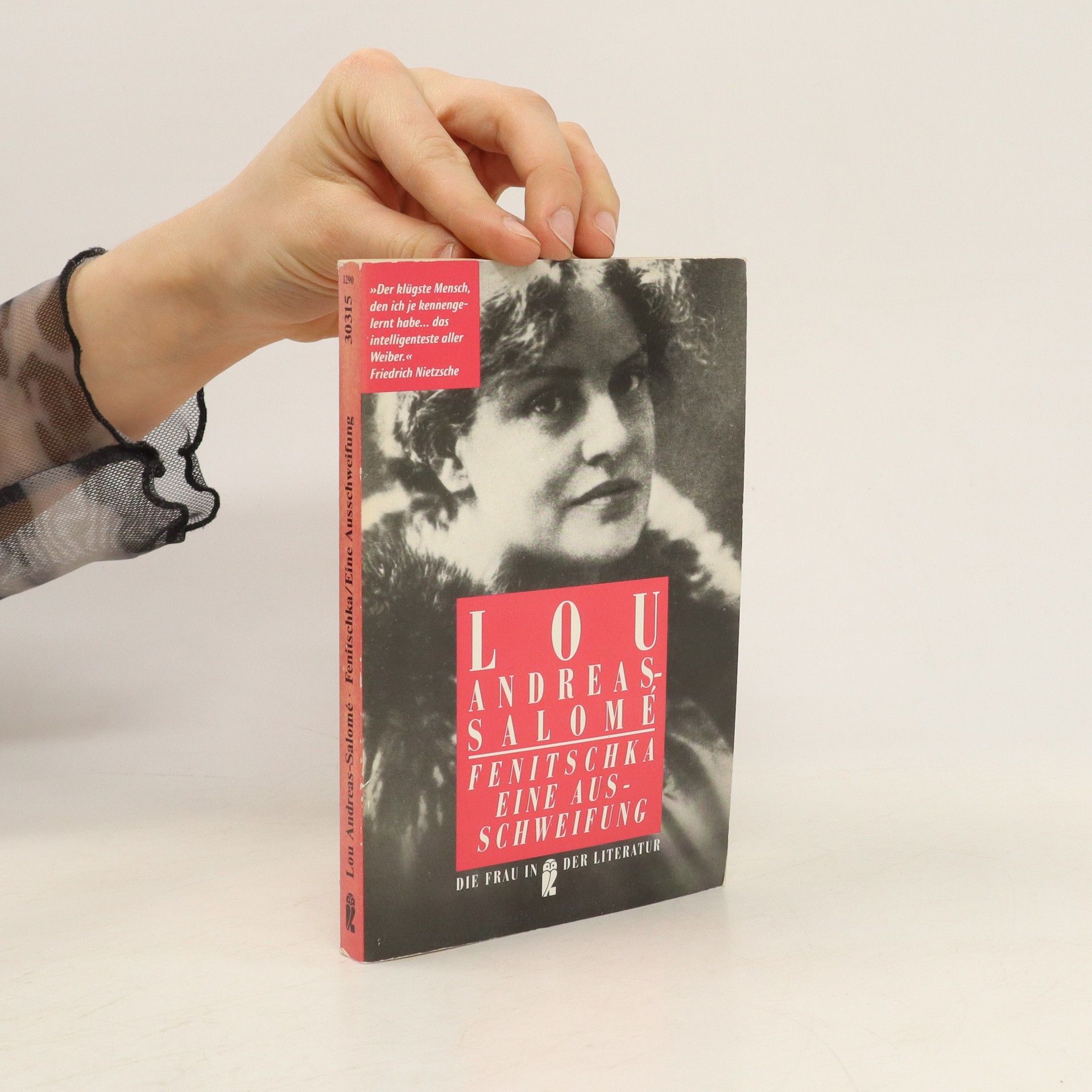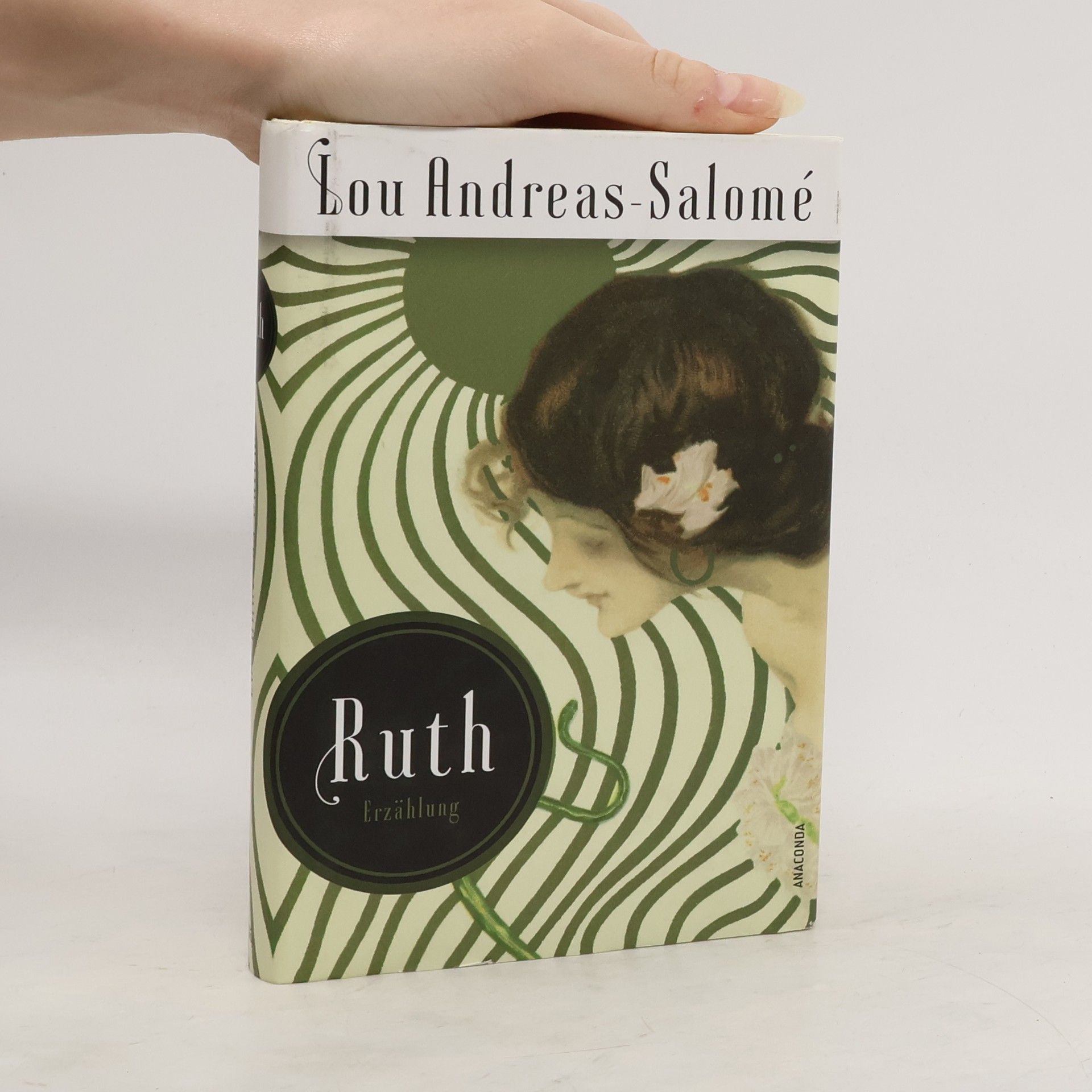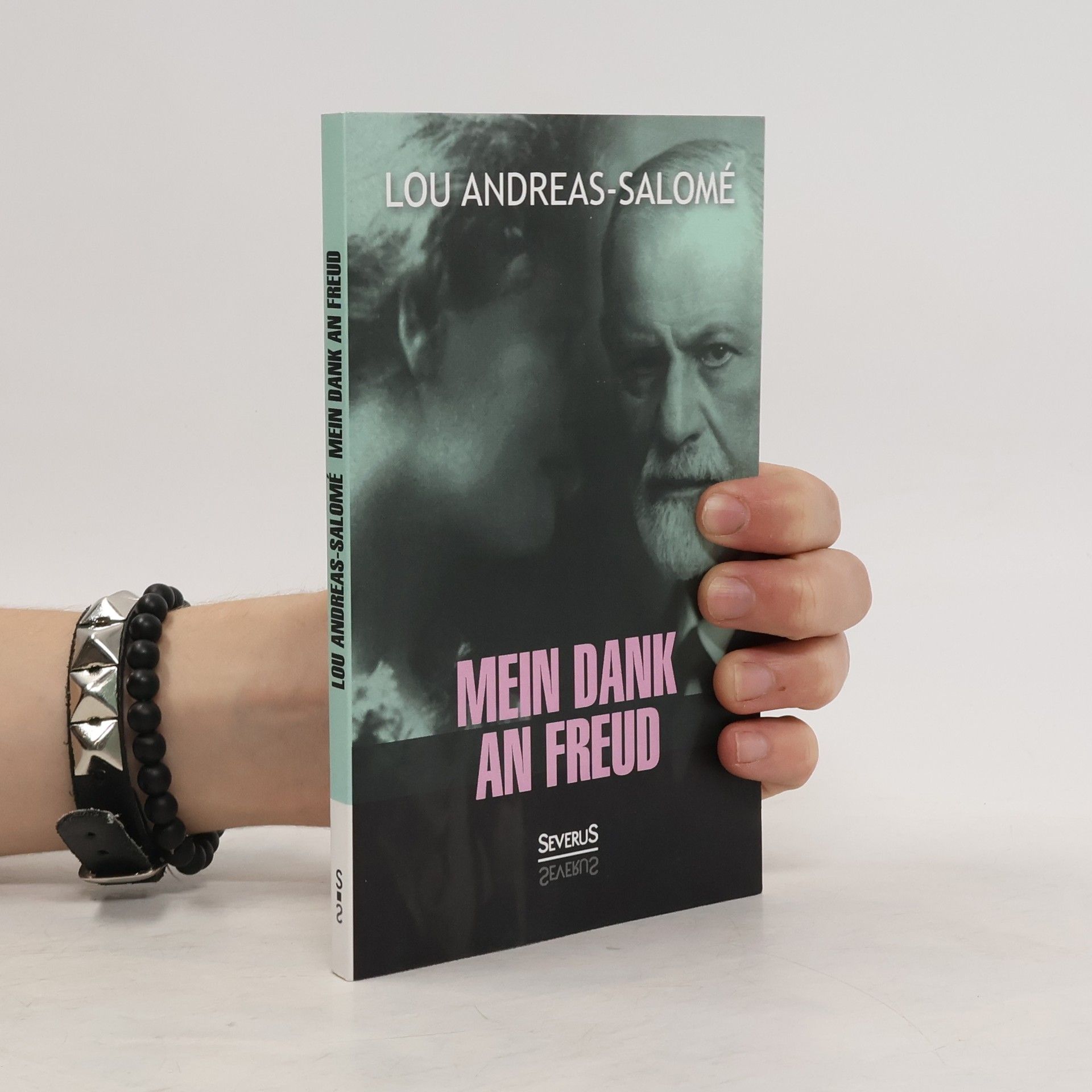Der Verlag Megali bietet eine Reproduktion historischer Werke in Großdruck an, die speziell für Menschen mit eingeschränkter Sehfähigkeit entwickelt wurde. Diese Initiative zielt darauf ab, den Zugang zu bedeutenden Texten zu erleichtern und das Lesen für alle zu fördern.
Lou Andreas-Salomé Book order (chronological)
Lou Andreas-Salomé possessed a remarkable breadth of intellectual curiosity, a trait that led her to form friendships with many of the era's most prominent thinkers and artists. As a prolific writer, her output spanned novels, essays, and plays, and she distinguished herself as a pioneering voice in the exploration of female sexuality and psychoanalysis. Towards the end of her life, she penned a memoir reflecting on her experiences as an independent woman, offering insights into a life lived on her own terms. Her profound ideas and unique perspective left a significant mark on the intellectual landscape.







„Im Zwischenland“ von Lou Andreas-Salomé, erschienen 1902, behandelt die sensiblen Übergangsphasen halbwüchsiger Mädchen und deren Suche nach Identität. Die Neuauflage lädt zur Wiederentdeckung dieses einzigartigen Werks ein, das die literarische Moderne mit einer spezifisch weiblichen Perspektive bereichert.
Die Reproduktion des Originals bietet eine detaillierte Nachbildung eines bedeutenden Werkes. Es legt besonderen Wert auf die Authentizität und die treue Wiedergabe der ursprünglichen Inhalte. Leser können sich auf eine sorgfältige Präsentation freuen, die sowohl die visuellen als auch die textlichen Elemente des Originals erfasst. Diese Ausgabe ist ideal für Sammler und Liebhaber historischer Literatur, die Wert auf die originale Form und den Kontext des Werkes legen.
Der Freudschen Begriff des Narzißmus wird als zentral für das Verständnis der libidinösen Entwicklung betrachtet, insbesondere in der Phase der ersten Objektwahl. Freud beschreibt Narzißmus nicht nur als eine Form des Egoismus, sondern als eine libidinöse Dimension, die alle Stadien der Selbstliebe begleitet. Der Begriff wird als Grundlage für spätere Objektbesetzungen der Libido angesehen, wobei Narzißmus als dynamisches Element fungiert, das sowohl Selbstliebe als auch die Beziehung zu anderen beeinflusst. Die Diskussion um diesen Begriff zeigt, wie tiefgehend und vielschichtig die psychoanalytische Theorie ist.
The first English translation of a presciently modern portrayal of emerging feminist sensibilities in a nineteenth-century family, by one of Germany's leading pre-First World War writers.
Henrik Ibsens Frauengestalten
- 188 pages
- 7 hours of reading
Lou Andreas-Salomé (1861-1937) gehörte zu den ungewöhnlichsten Frauen des 19. und frühen 20. Jahrhunderts: Zeitweise eng mit Nietzsche befreundet und mehrere Jahre mit Rilke liiert, gehörte sie später zum inneren Zirkel um Sigmund Freud, von dem sie sich als eine der ersten Frauen überhaupt zur Psychoanalytikerin ausbilden ließ. Zu ihrem umfangreichen Werk gehören Erzählungen und Romane, psychoanalytische Fachbücher sowie literarische Essays wie die vorliegende, frühfeministische Untersuchung zu Ibsens Frauengestalten in dessen sechs sogenannten Familiendramen von "Ein Puppenheim" bis "Hedda Gabler". Bearbeiteter Nachdruck der 1906 in Leipzig und Jena erschienenen zweiten Auflage.
Die 16-jährige Waise Ruth wird von ihrem Lehrer Erik bei sich zu Hause aufgenommen. Obwohl verheiratet, verliebt er sich in seine knabenhafte Schülerin – und so beginnt ein Reigen an Problemen rund um Selbst- und Fremdbestimmung. Ist sie Zögling oder Spielball und Geliebte? Löst sie sich von der dominanten Männerfigur oder fügt sie sich ihm willenlos? Eine faszinierende psychologisierende Erzählung, in der Geschlechterrollen, Machtverhältnisse und das Erwachsenwerden einer jungen Frau ganz nah am Zahn der Zeit thematisiert werden, wie es Arthur Schnitzler nicht besser hätte beschreiben können.
Sex and religion
- 117 pages
- 5 hours of reading
Drei Breife an einen Knaben (Three Letters to a Young Boy) and Der Teufel und Seine Grossmutter (The Devil & His Grandmother) are texts that explore sexuality across the lifespan with some unexpected twists and turns. The Devil & His Grandmother treats the collision of sexuality and religion, and therefore religious education indirectly. The Three Letters was originally authored in 1912 with two letters addressed to Helene Klinenberg's son and a third added in 1913. The Three Letters were edited, appended and finally published in 1917 by Kurt Wolff's Verlag in Leipzig. --
Die Biografie von Lou Andreas-Salomé beleuchtet das Leben einer faszinierenden Persönlichkeit des 19. und frühen 20. Jahrhunderts. Als Schriftstellerin und Psychoanalytikerin prägte sie die literarische und intellektuelle Szene ihrer Zeit. Ihre Beziehungen zu bedeutenden Denkern wie Nietzsche und Rilke zeigen ihre Rolle als Muse und Denkerin. Mit einem multikulturellen Hintergrund und einer Vielzahl von literarischen Werken hinterlässt sie einen bleibenden Eindruck in der Literaturgeschichte.
Es ist das Schonste, was ich von Ihnen gelesen habe, ein unfreiwilliger Beweis Ihrer Uberlegenheit uber uns alle." (Sigmund Freud an Lou Andreas-Salome uber Mein Dank an Freud") Lou Andreas-Salome war die Femme fatale des 19. Jahrhunderts, sturzte beruhmte Manner verhangnisvoll ins Ungluck und ging stets ihren eigenen Weg. Als Freuds Schulerin und erste weibliche Psychoanalytikerin verband beide bis zum Lebensende eine tiefe Freundschaft. Sein Intellekt schurte ihr geistig-schopferisches Feuer und bot ihr die Moglichkeit, sich gedanklich zu entfalten. Ihr letztes Werk Mein Dank an Freud" ist eine Reflexion uber verschiedene Themen der Psychoanalyse. Poetisch-verastelt offenbart es die ganze Eigenheit und Tiefgrundigkeit ihrer Gedanken."

